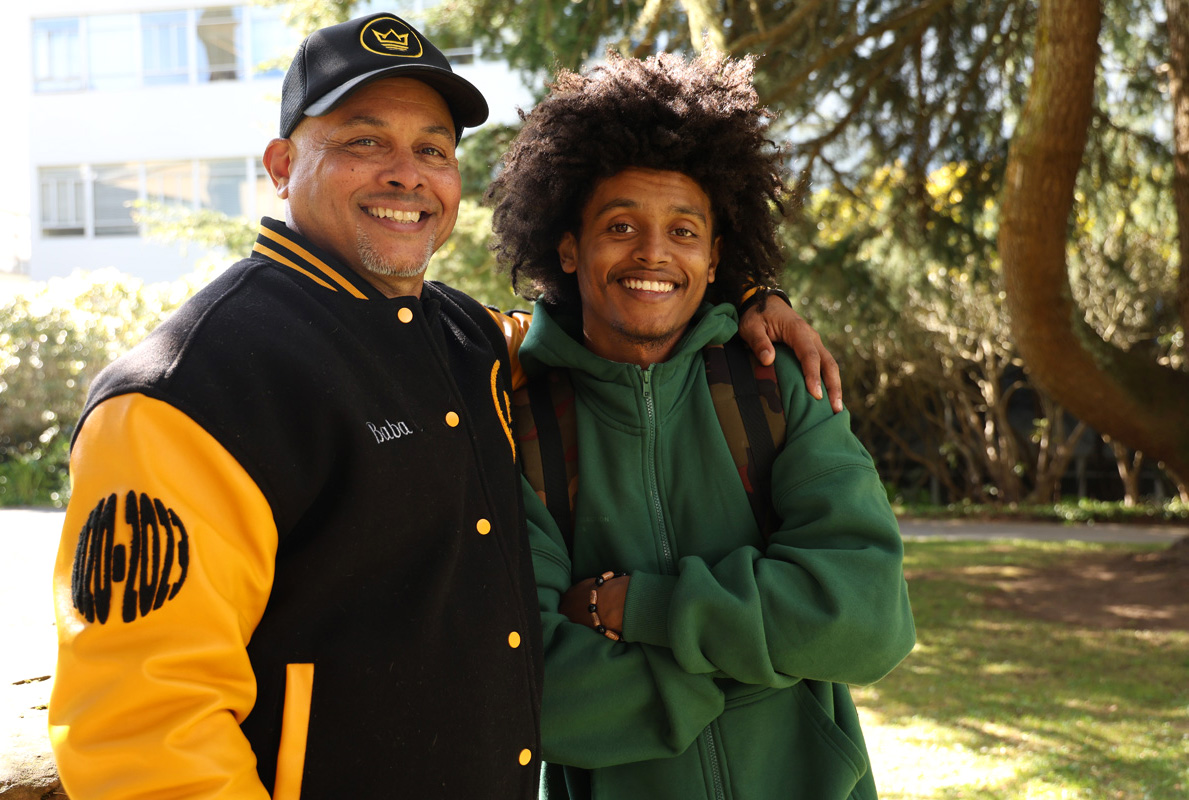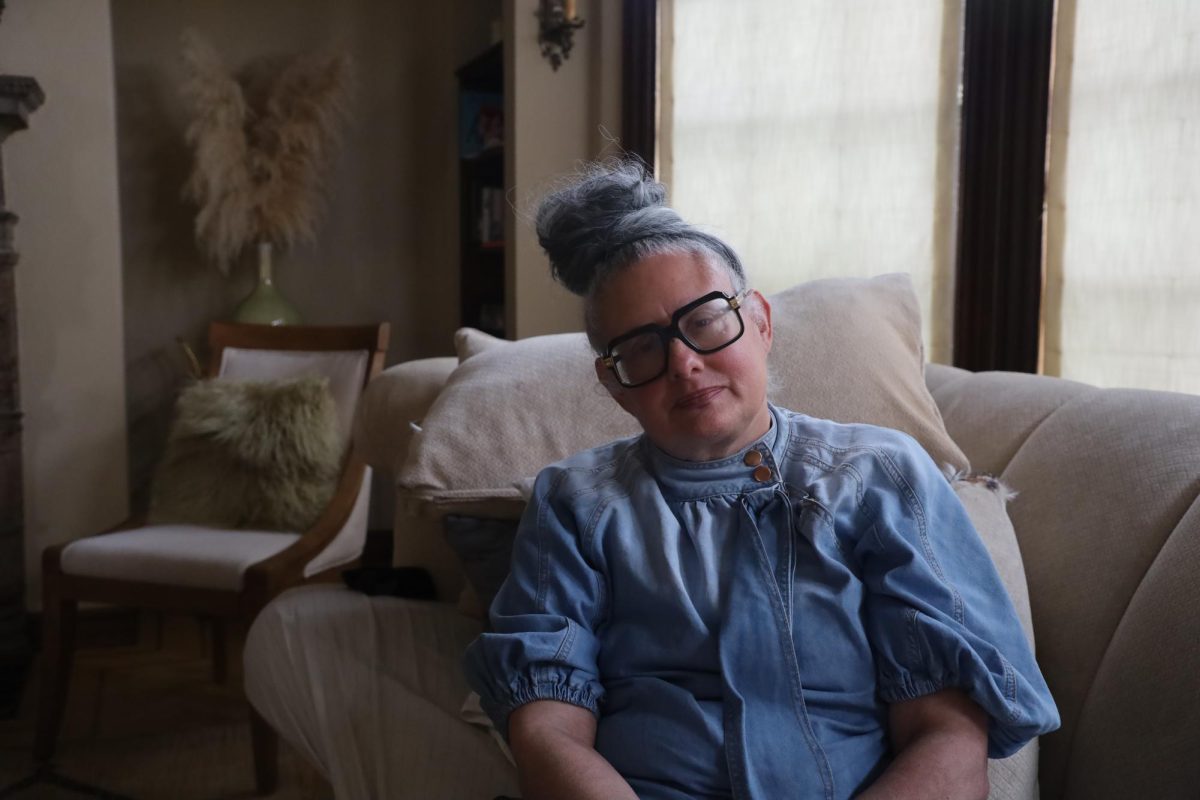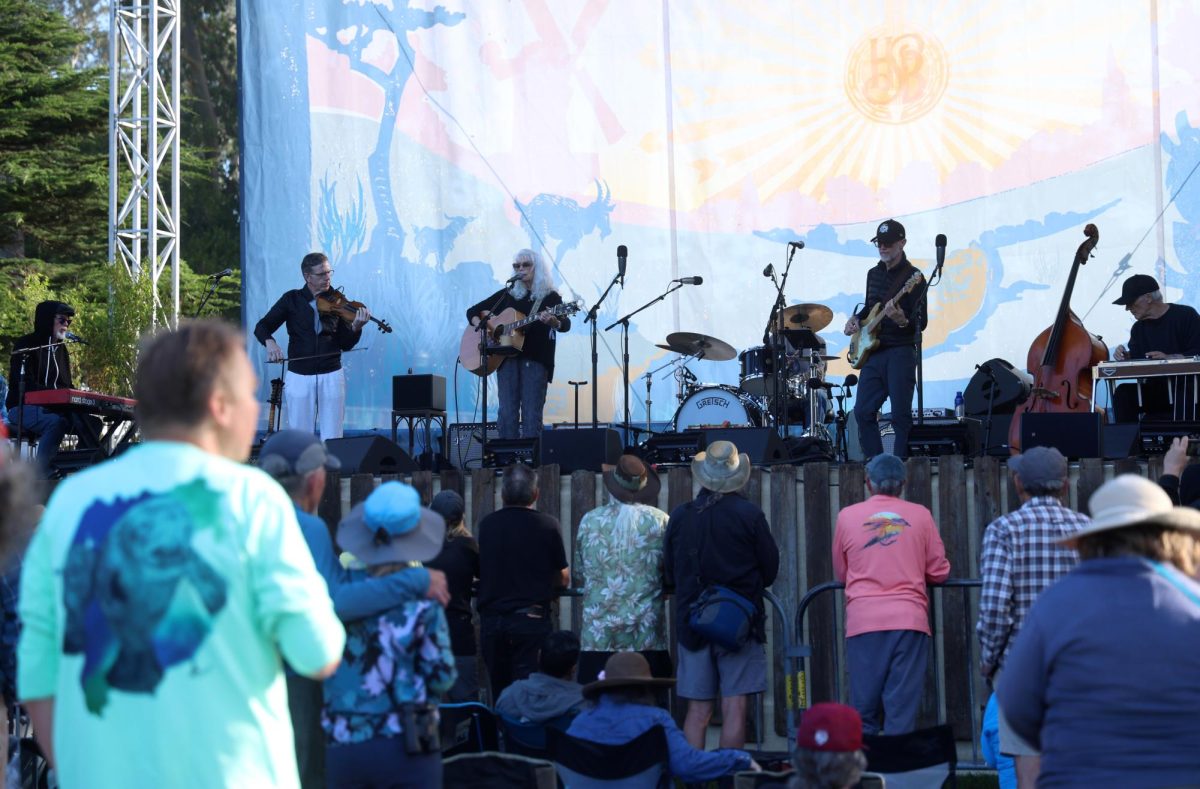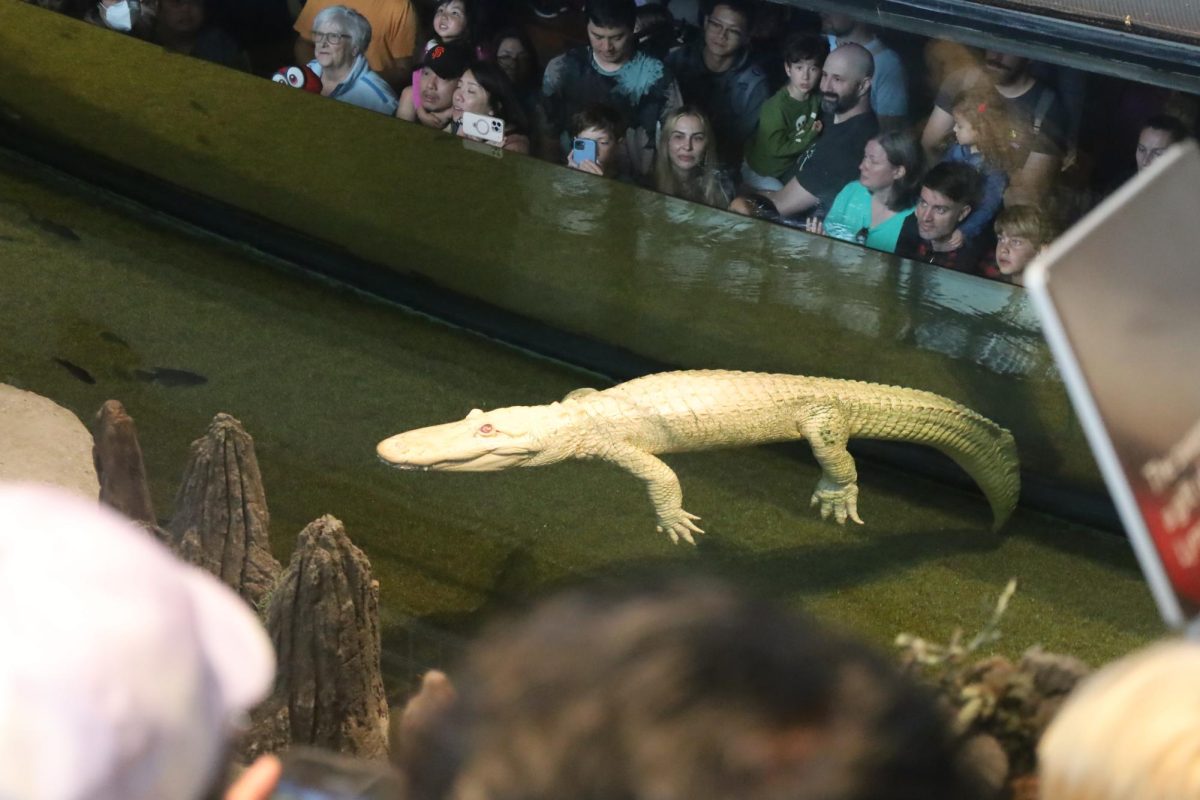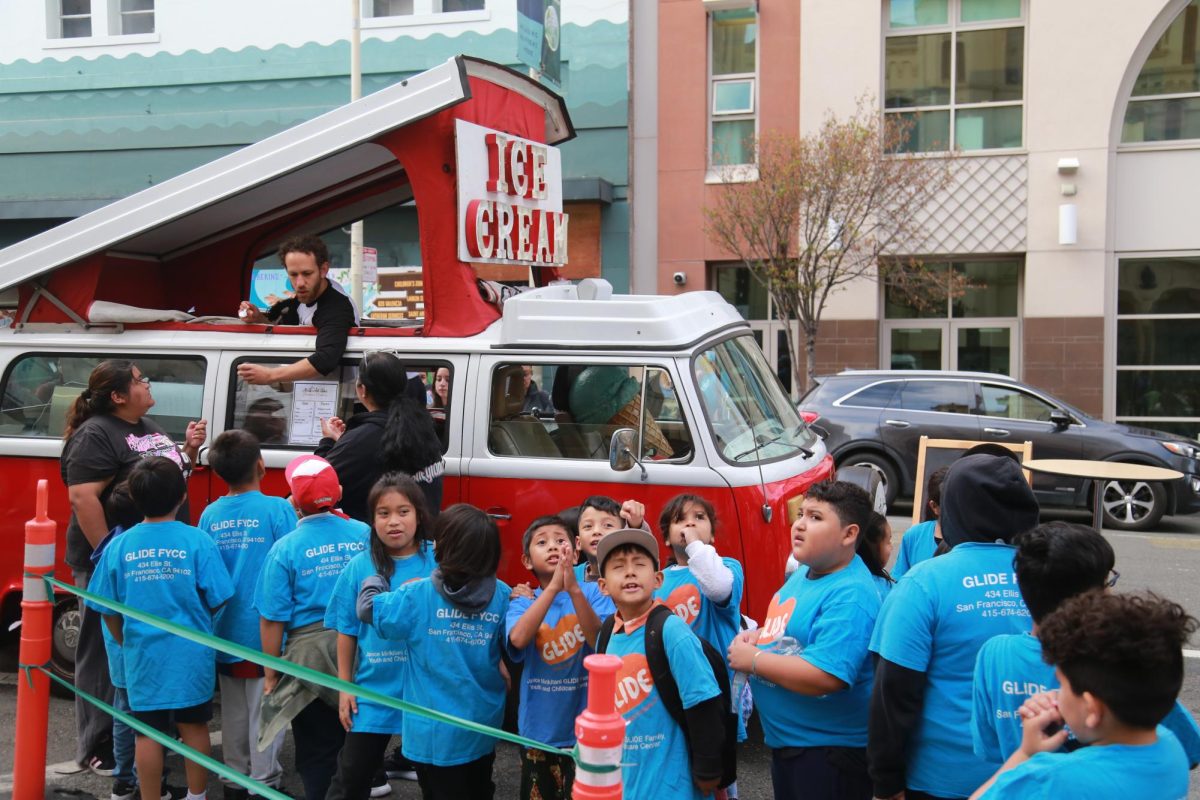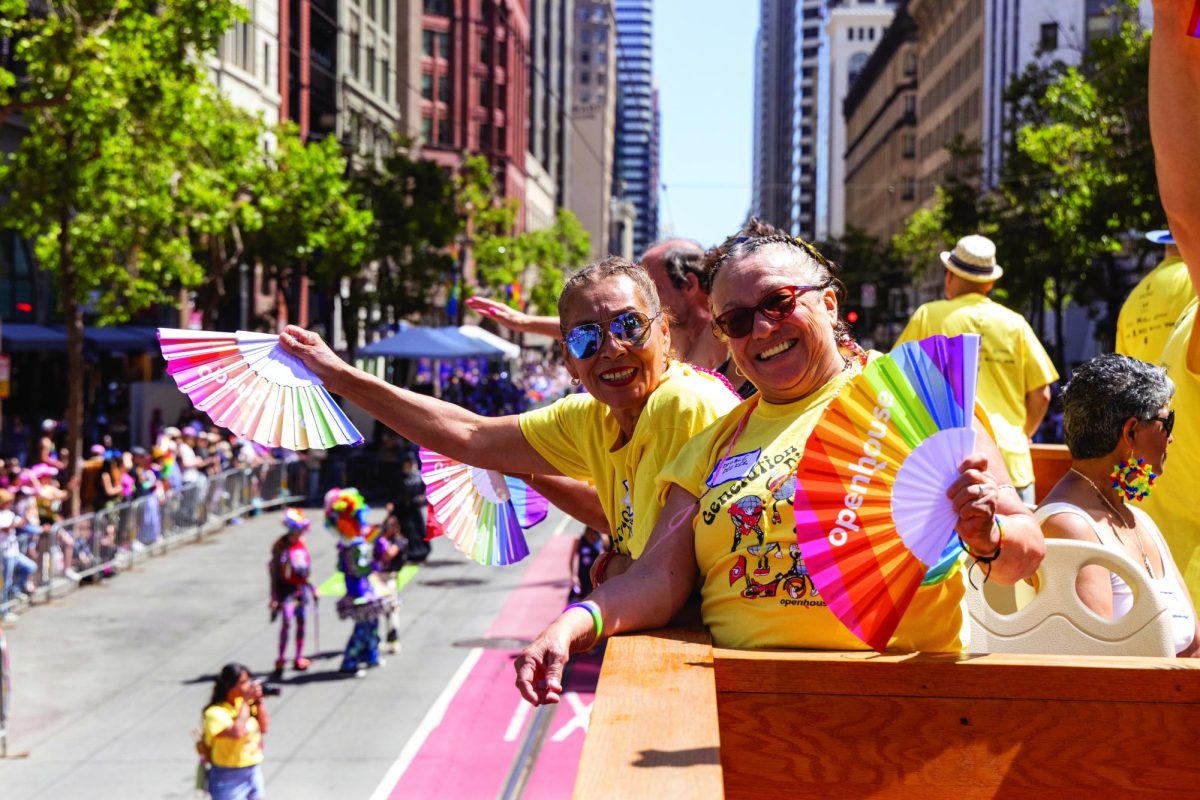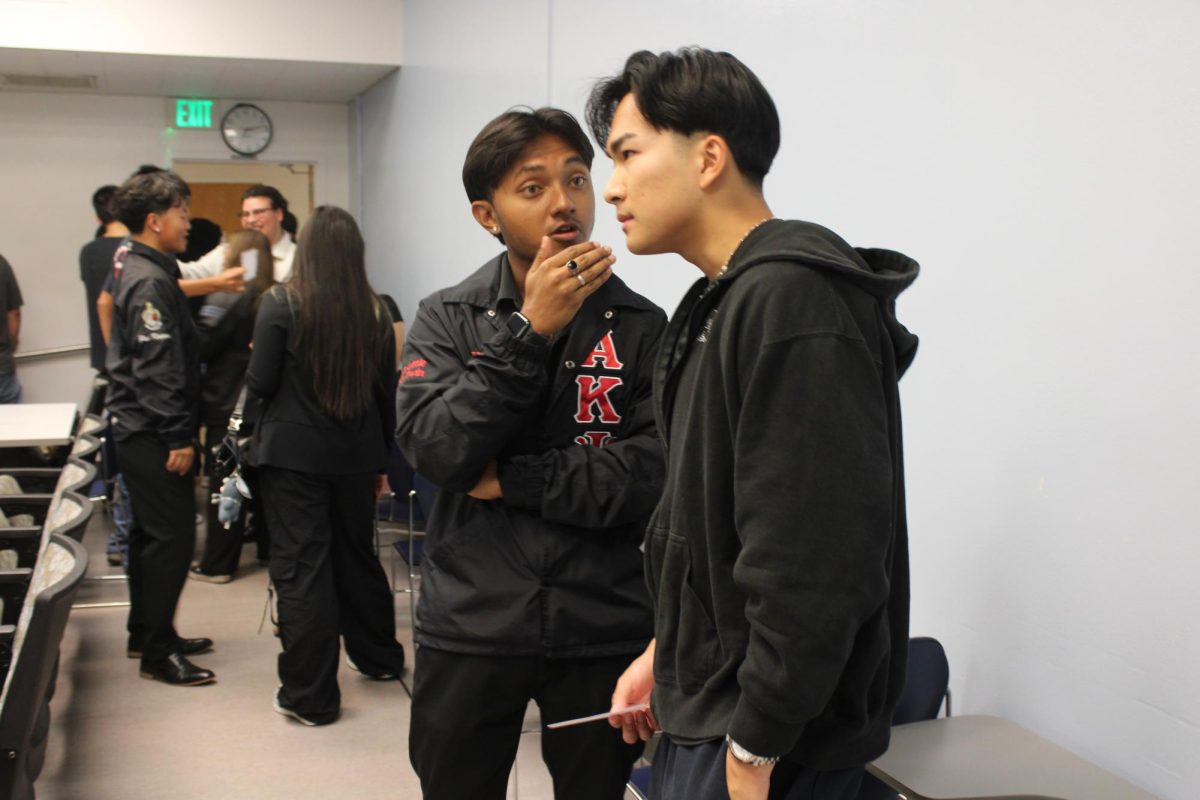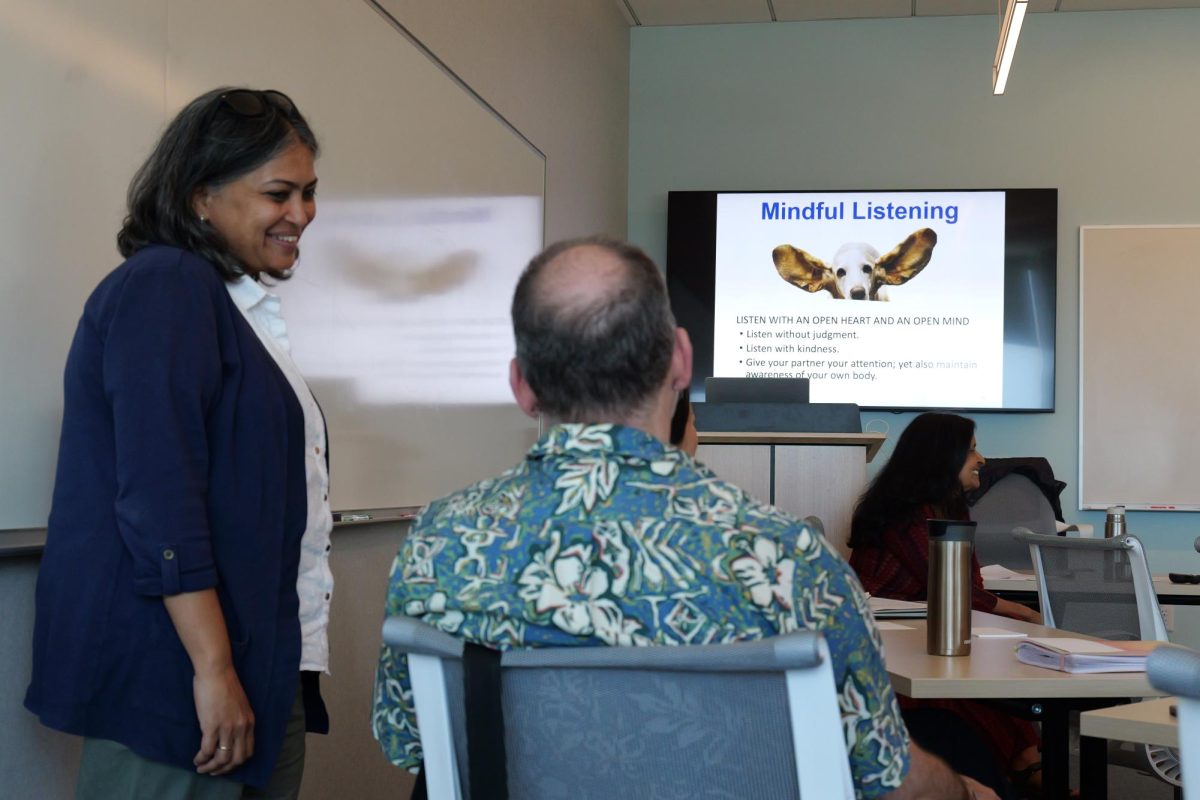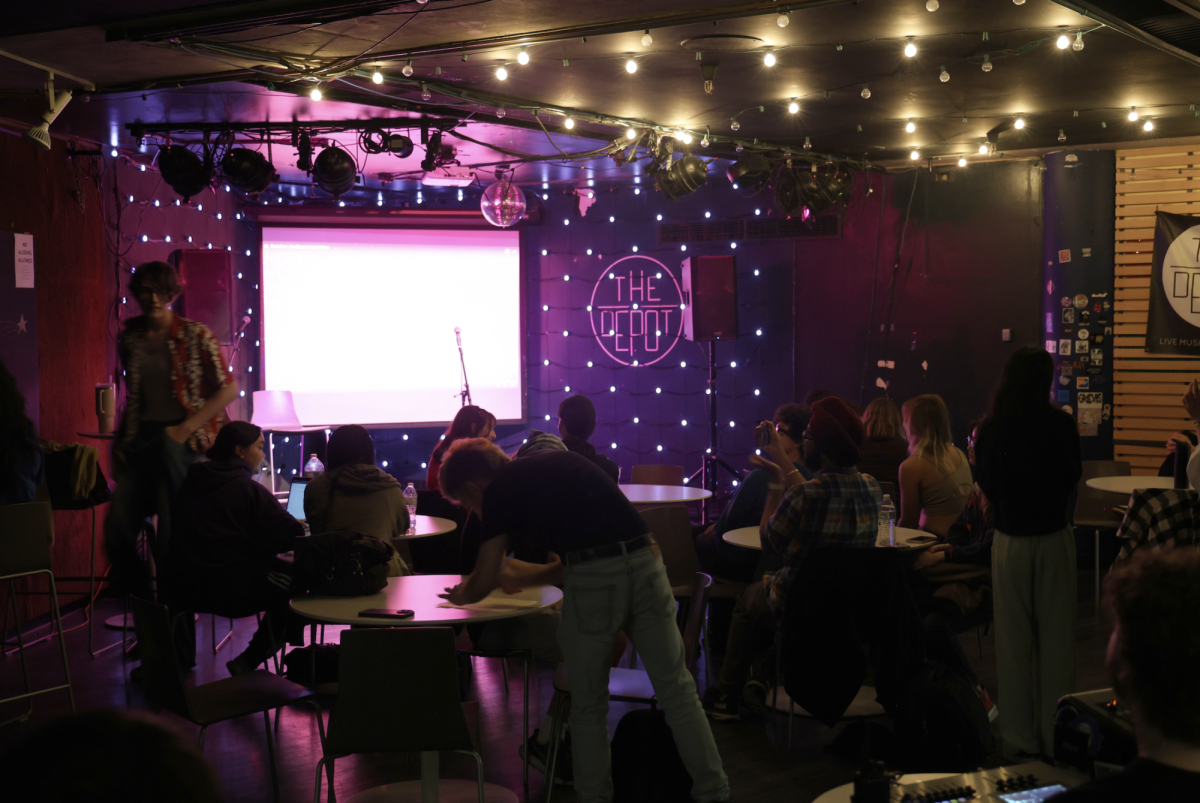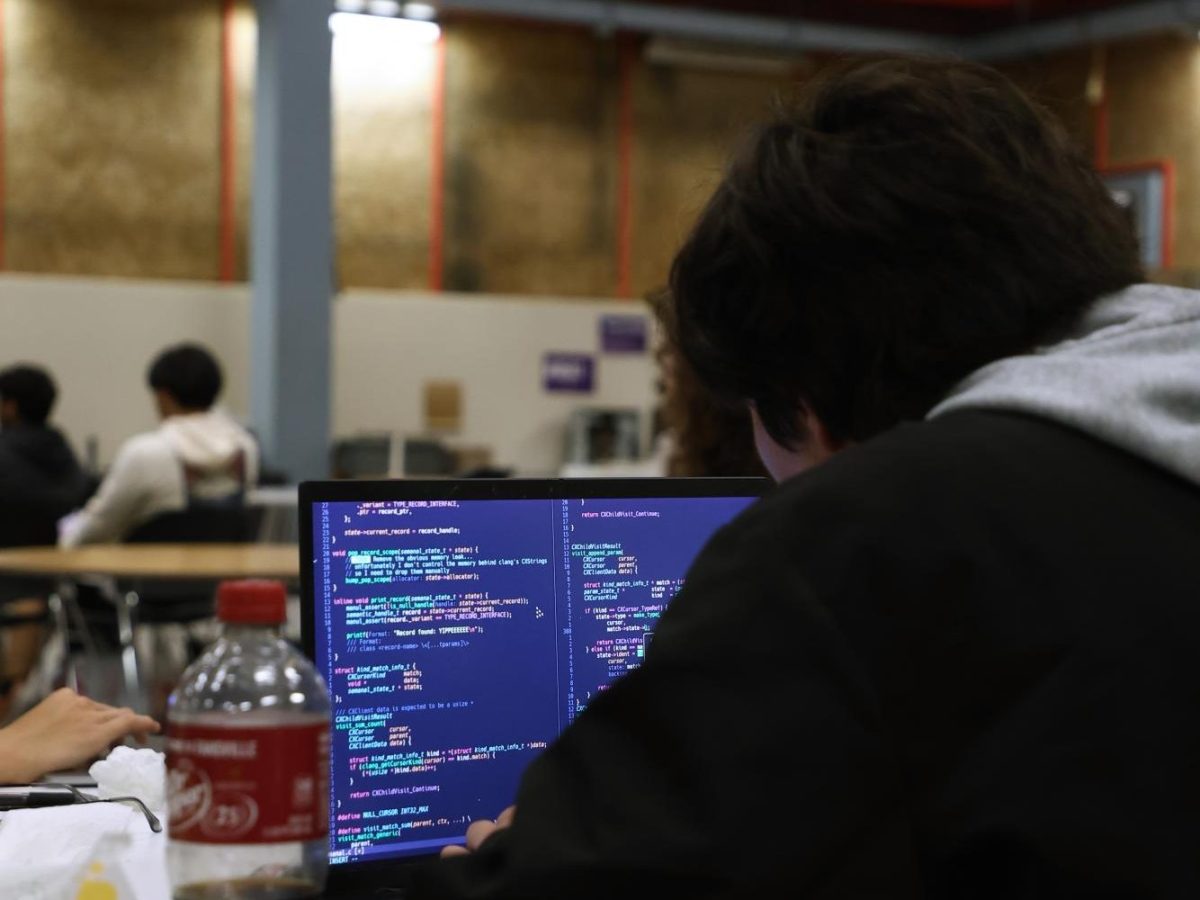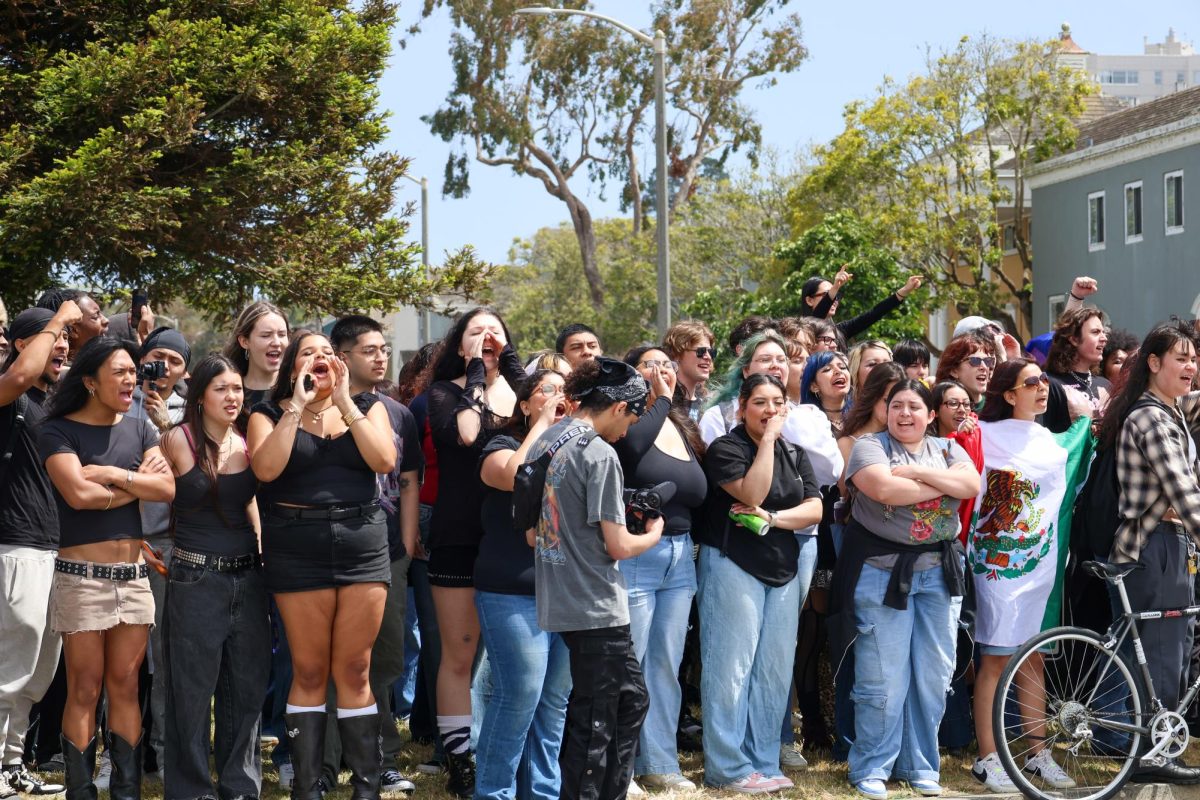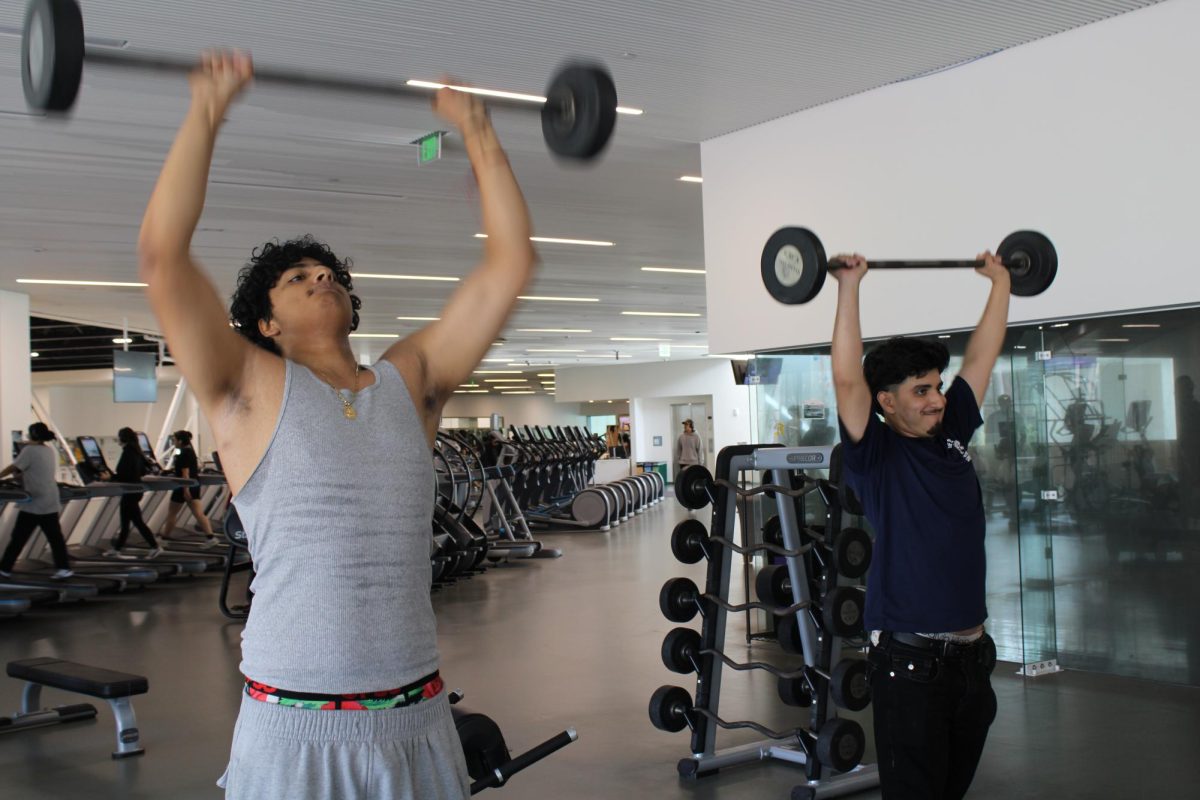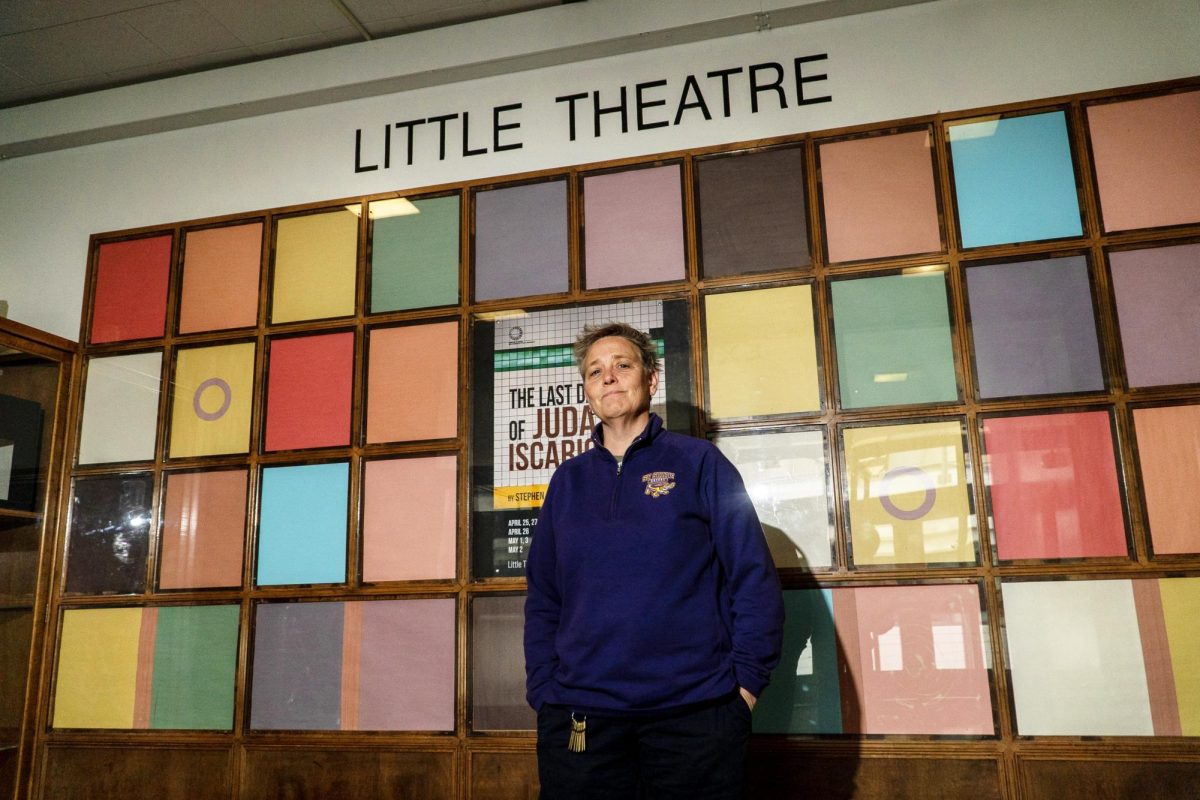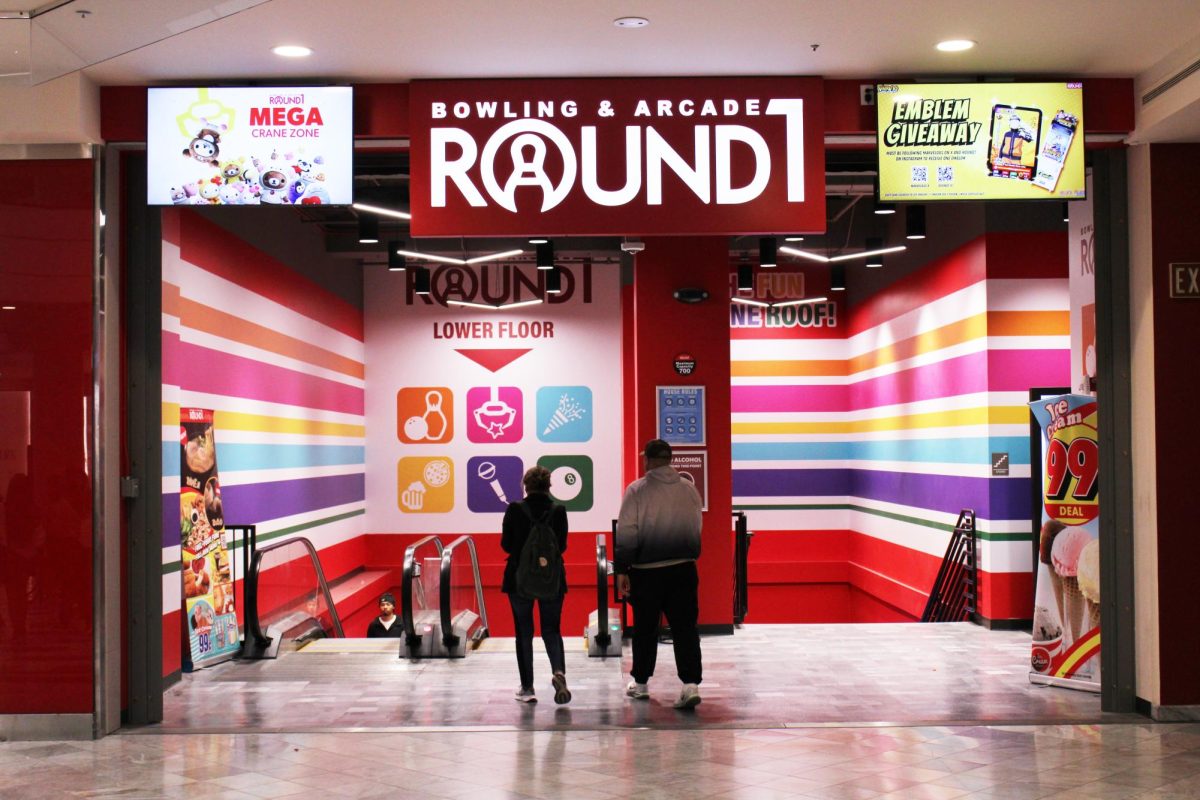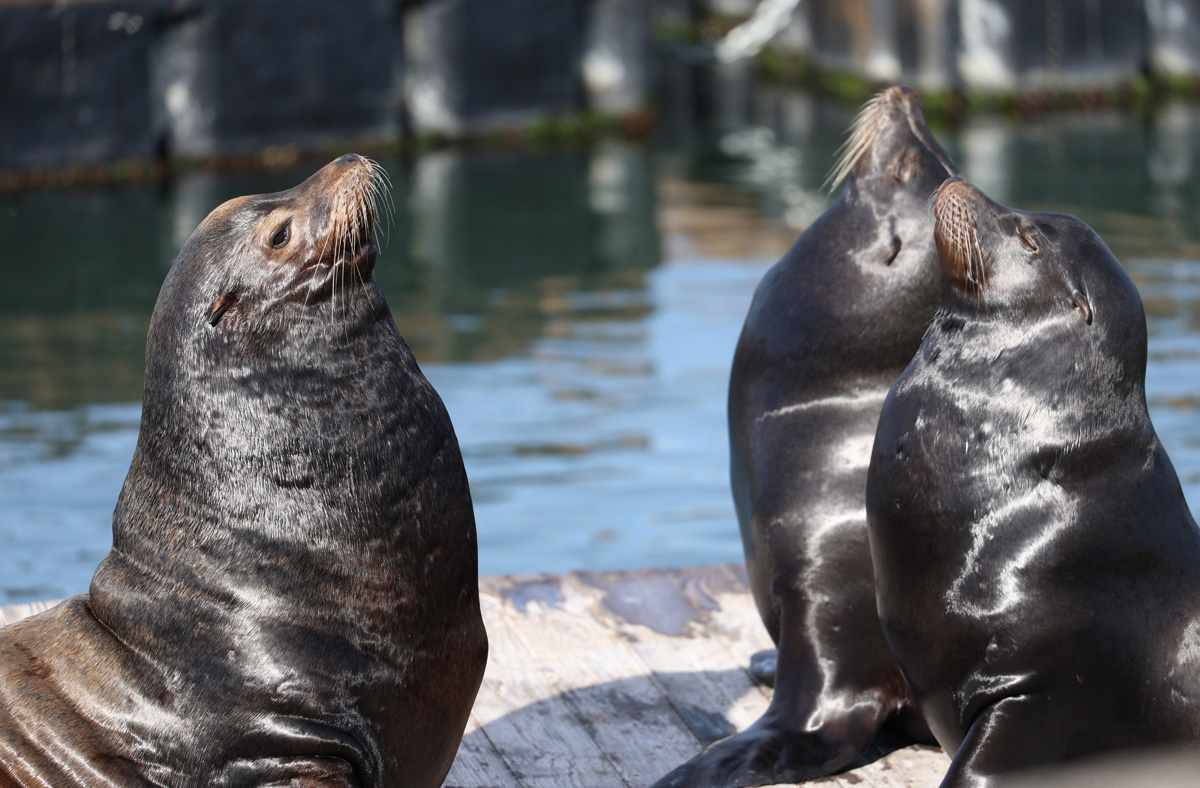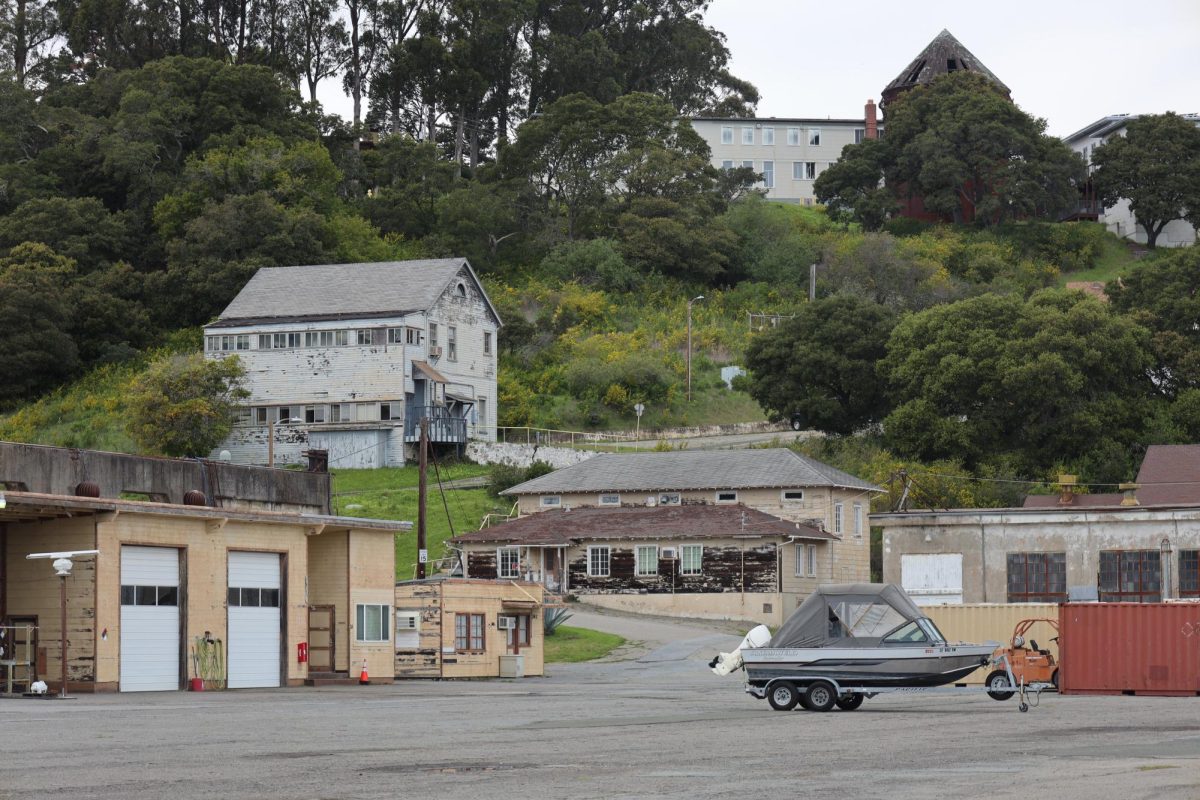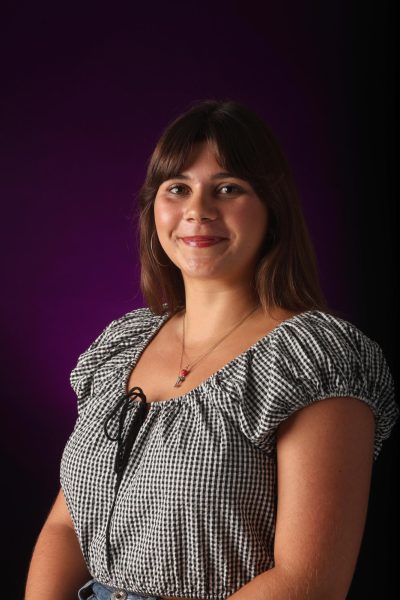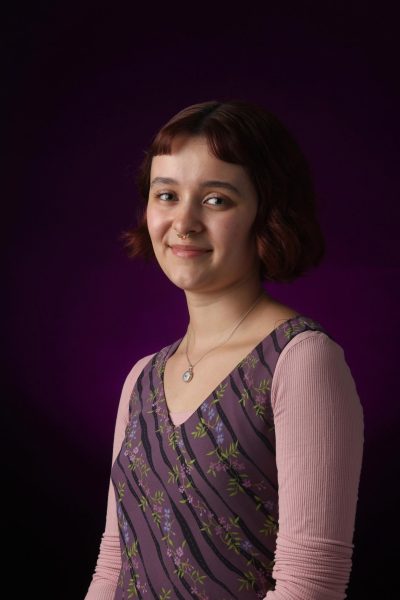As the scent of coffee and sound of chatter fill the Cesar Chavez Student Center, deja vu hits Chris Chatmon. He’s been here before, but not quite. Thirty years ago, Chatmon and his mother — SF State alumni Deloyce Chatmon — shared a similar afternoon on campus over a slice of pizza, before his first day of classes. But now, it’s Chris here, showing the campus to his son, Jordon.
As three generations of SF State Gators — whether intentional or not — the Chatmons share pride in their legacy status. Of course, being a legacy at SF State isn’t quite the same as being one elsewhere. As Bobby King, the university’s director of communications, points out, legacy is typically associated with admissions advantages at private institutions.
That’s not the case at SF State.
“There are no benefits extended to legacy students at the university,” Katie Lynch, the senior associate vice president for enrollment management, explained. Still, an estimated 2,000 families fall under legacy status at SF State. But for them, its meaning is entirely different.
The following six families share what legacy at SF State means to them.
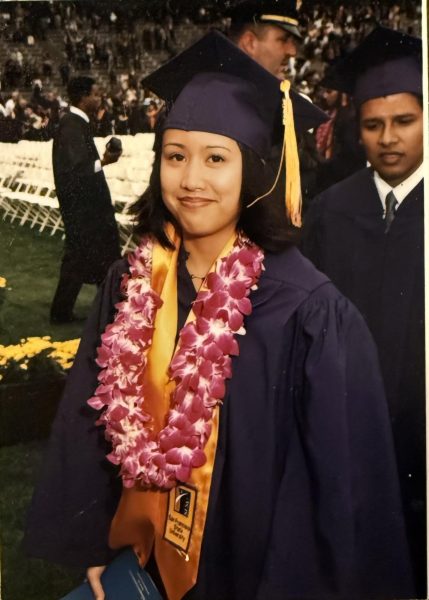
Good things come in three
For the Chatmon’s, SF State led to an unexpected tradition of educators. For Deloyce, her time at SF State meant involvement in the Black Student Union and going on to receive her teaching credential in 1968. For Chris, college in the mid-1990s meant immersing himself in SF State’s social environments, something his mother introduced him to. Jordon, a third-year child and adolescent development major, is the third Chatmon to pursue an education in teaching at SF State.
“He wasn’t forced or pushed,” said Chris. [Jordon] just naturally, saw that as an option. That level of legacy was real,” he continued. “Our youngest son got accepted, chose San Francisco State, and in his own spirit, actually chose to teach.”
For the Chatmons, legacy is an ever-growing impact of teaching. As Chris – now the director and CEO of Kingmakers of Oakland, a nonprofit dedicated to serving black boys in the public school systems — puts it, “legacy was just always making sure the youth in my arms reach knew about and would consider San Francisco State as an option.”
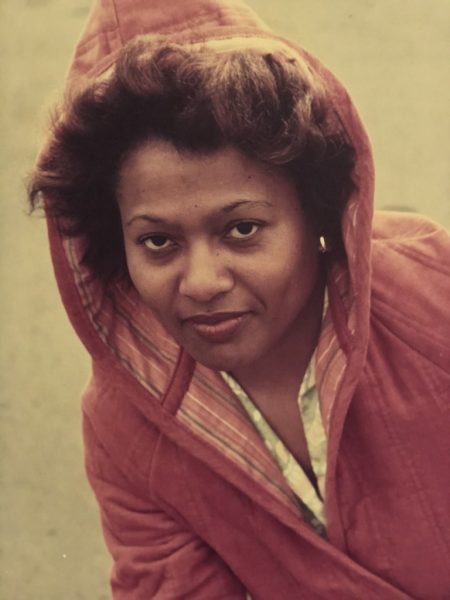
From one CSU to the next
Aside from the fog, 94-year-old SF State alum Eiji Ayabe hardly recognized SF State’s campus while moving his granddaughter Chloe Ayabe into the dorms.
“When I was moving in,” Chloe said, “he was like ‘the campus looks completely different.’”
Chloe, a fourth-year communications major, who was raised by two San Jose State alumni, didn’t have to think twice about going against the grain of her parents’ alma mater. When it came time for Chloe to apply for college, she prioritized SF State for its museum studies program. It was only then that she discovered SF State was where her grandfather studied.
Although Chloe initially attempted to stray away from her parents’ narratives, her CSU roots and legacy status has ended up being what supports her most while navigating ongoing budget cuts in her department. Chloe’s legacy status grounds her in the uncertainty of the university’s future.
“I would’ve felt more floundering and out of place if I didn’t have the history with the school,” Ayabe said. “There’s sort of that comfort in being, like, OK, there’s a lot of bad things happening with my department and with the school and with the cuts. But I still feel connected to something with the CSU history.”
Like mother, like son
For Esthton Liu, a fourth-year chemistry student, SF State allowed financial certainty and offered a warm welcome. However, his mom attended SF State 30 years prior with different expectations. Still, they’ve both come to share a similar understanding of legacy.
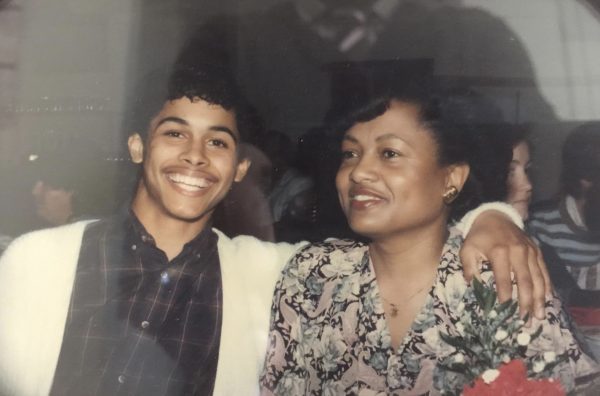
“A lot of her focus,” Liu explained, “was to get her degree done as quick as possible and get her accounting license.”
His mother, who ended up being an officer in the Accounting Student Association (ASO), a club still around today, is what Liu sees as a shared legacy in running the campus’ Fog City Rocketry Club.
“Fog City Rocketry Club,” Lui said, “can continue to be an applied learning space for many, many, many students down the road, just like ASO that my mom was in.”
Unconventional legacy
Emmy-winning journalist and ABC news anchor Whit Johnson knew what legacy meant to him long before he started at SF State.
“I felt like I was instantly at home when I arrived,” Johnson said, who received his BA from the university in 2005 and gained familiarity with what he called the “cold days and the fog and all that stuff rolling over Lake Merced,” growing up in San Francisco.
Both of Johnson’s parents attended SF State in 1968, the year the university became the epicenter of one of the most significant student-led protests in U.S. history — the San Francisco State College Strike. Years later, Johnson’s mom returned to campus, teaching part-time in the early 2000s.
Johnson might also be one of the few SF State students to have taken a class from their mom. For him, it was physical geography. Memorably, he and his soccer teammates would also occasionally crash her office hours. These encounters, according to Johnson, shaped his unique SF State experience.
Despite any legacy benefits offered through SF State, in the end, it didn’t matter. For Johnson, his family legacy offered him something deeper.
“It’s been something that, as I’ve gotten older, I’ve been able to look back on with my parents and kind of enjoy that it all came together this way,” he said. “And it’s all kind of by chance.”
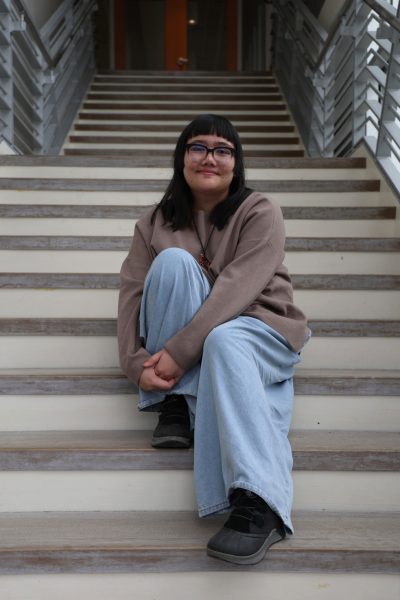
An extended family affair
After starting at SF State two years ago, it didn’t take long for Lucia Sano, a second-year studio art and art history major, to recognize what legacy meant to them. It was the presence of three closely related alum. Their dad, aunt and mom’s cousin, who all had attended SF State, and their family scattered throughout the Bay Area, quickly made San Francisco feel like home.
Sano continues their legacy through their involvement in the Filipino academic community. Their aunt had been a part of SF State’s League of Filipino Students (LFS), and their mom studied Asian American Studies at UCLA. “That’s what kind of put the club on my radar when I was coming to state,” Sano explained.
For Sano, these family ties to the Filipino academia space bring them a newfound familiarity. “If you’re in the Filipino academia space,” explained Sano, “you have connections with everyone in the Filipino academia space.”
Sano’s legacy is measured by the reminders of their family throughout campus. There’s the top of Cesar Chavez, where their aunt hung out with friends, and the campus garden, where their dad worked.
Lessons in legacy
Unlike the traditional pageantry indicative of legacy status at private universities, SF State legacies don’t find meaning in their status, rather the people led them here.



